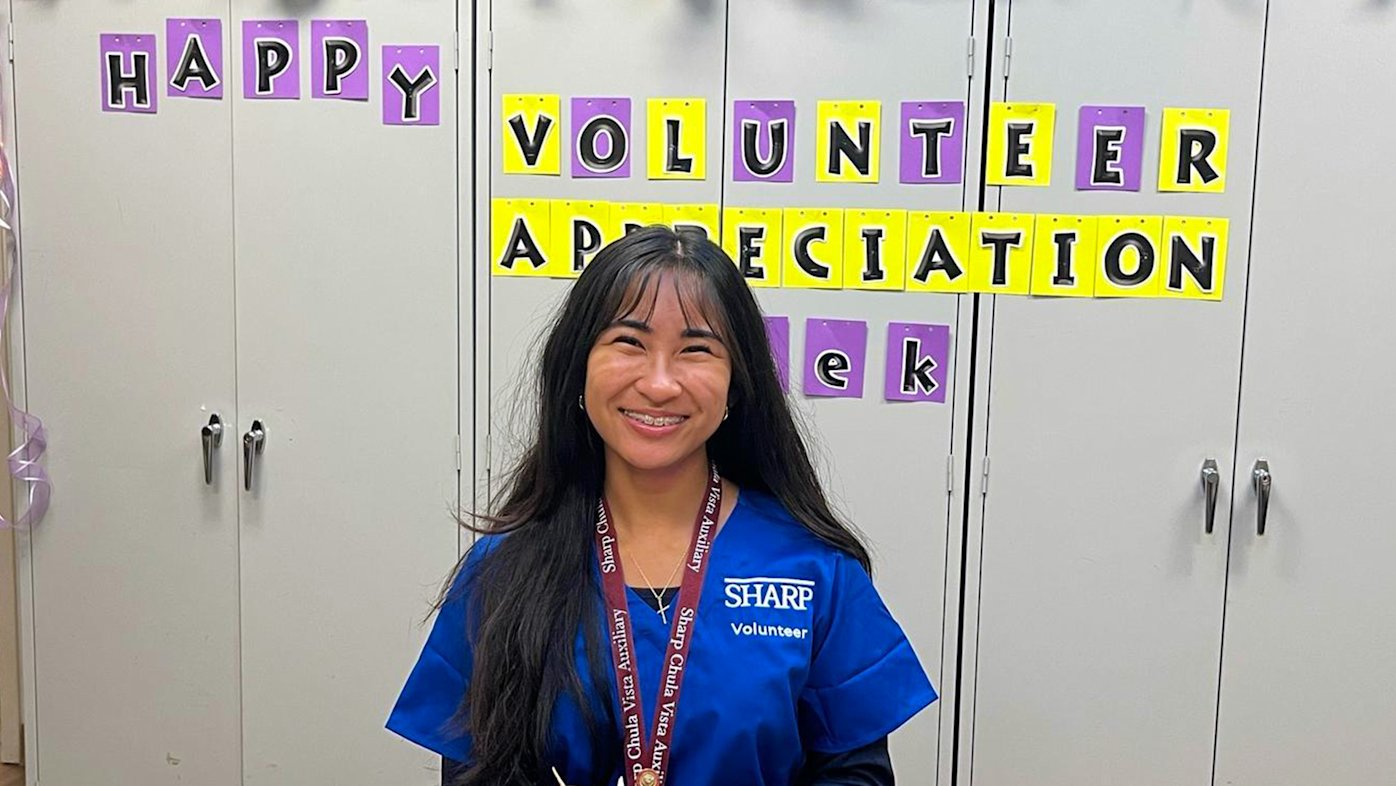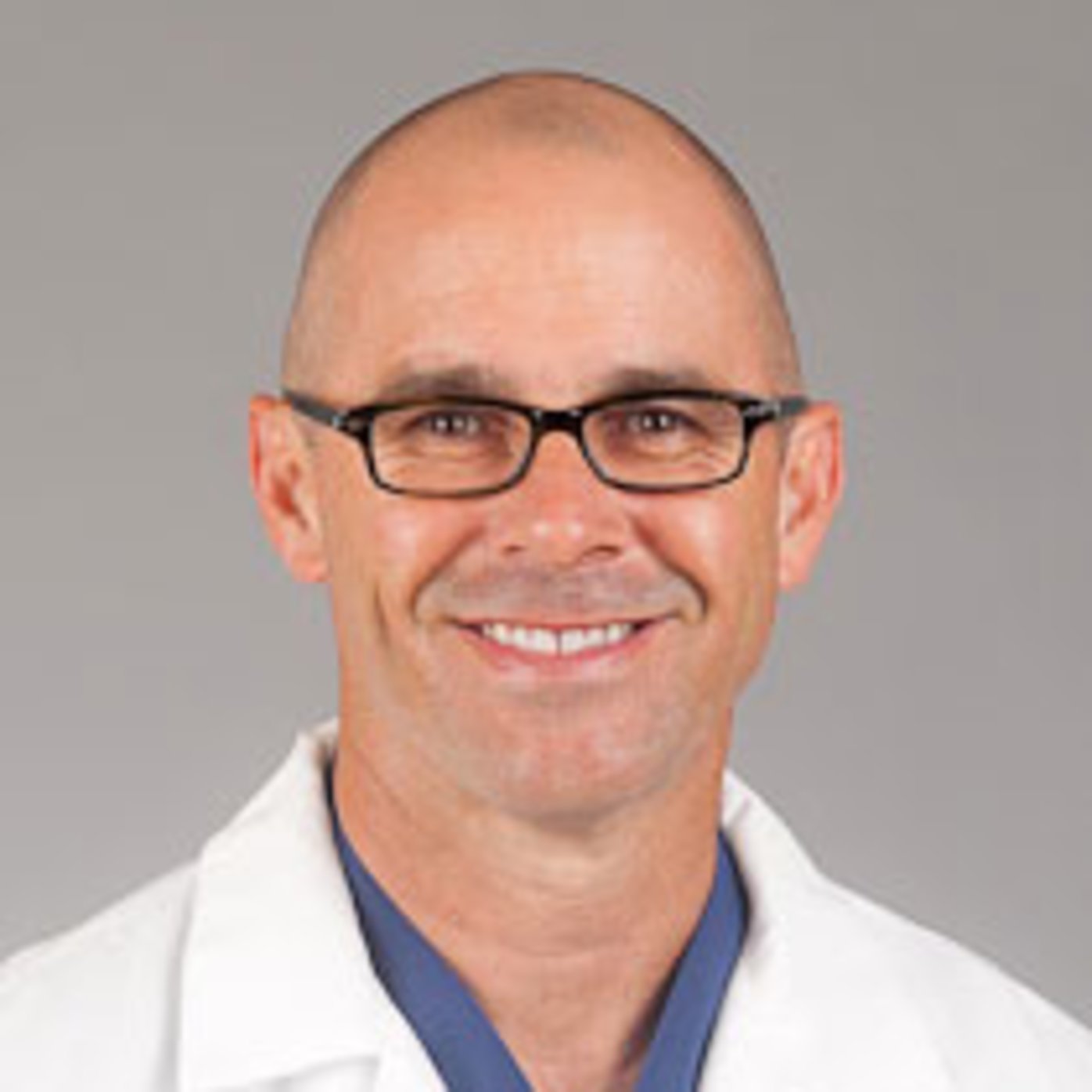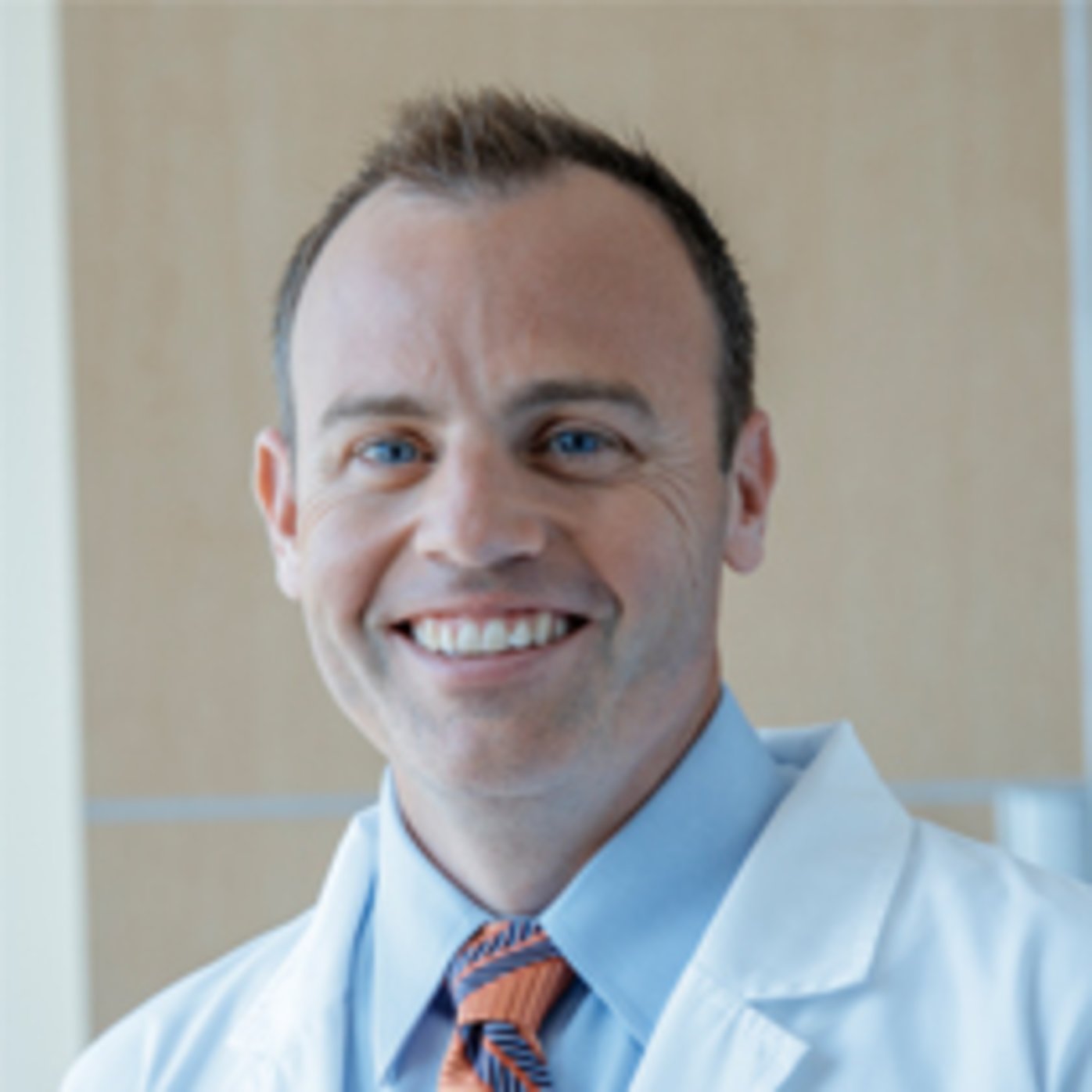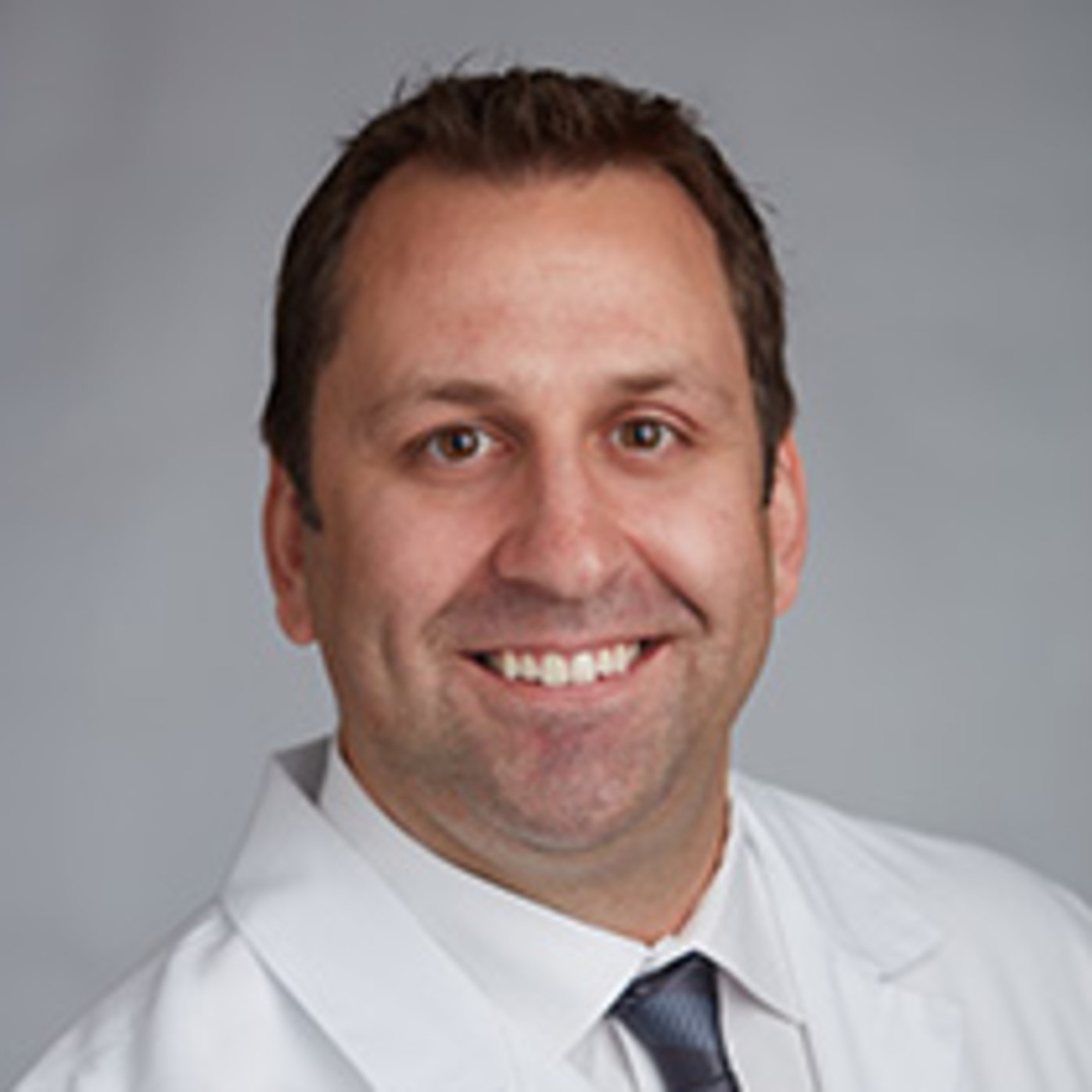
Student volunteer brings joy with wishing cranes
Carefully folded origami cranes carry messages of hope and healing, as one teen volunteer helps brighten patients’ days at Sharp Chula Vista Medical Center.
When most people look forward to what the new year might bring, they focus on improved fitness, career goals or perhaps a new relationship. While Michael Ceccon certainly didn’t know what 2020 had in store for him, he — and those he’d soon meet — met it with strength, resilience and more than a touch of ingenuity.
Michael is a mental health therapist who recently turned 42, a milestone he credits Sharp care providers with allowing him to have. In January 2020, he experienced intense chest pain. Although he is generally very fit and active, he assumed he was having a heart attack. Unfortunately, it wasn’t that simple.
“I was thinking to myself, ‘I don’t know what a heart attack feels like, but I imagine that it would feel something like this,’” Michael recalls. “In general, I have a very high pain tolerance and would never go to the emergency room for anything unless I felt it was very serious. It was painful enough that within five minutes or so of the onset, I knew that I had to go to the hospital.”
Far more challenging than a heart attack
Michael, a resident of Birdland, the neighborhood next to Sharp Memorial Hospital, asked a friend to take him to the ER, where he described the pain he was feeling. He was taken for a CT scan; however, he experienced cardiac arrest — a sudden loss of heart function — before a scan could be performed.
“Michael arrived in the late afternoon experiencing chest pain, but all of his immediate test results — EKG, chest X-ray, labs — were normal,” says Dr. Joseph Bellezzo, a board-certified emergency medicine doctor affiliated with Sharp Memorial. “Michael needed a CT scan of the chest to identify the cause of his immense chest pain, but suffered cardiac arrest just prior to the CT. He was brought back to the emergency department and was intubated, a procedure in which a tube was inserted down his throat and into his airway to provide assisted ventilation. After he temporarily regained pulses, he was taken back for a CT, but he kept arresting, which made getting the CT challenging.”
Ultimately, the ER team successfully scanned Michael and found the reason for the repeated cardiac arrests: a catastrophic aortic dissection. An aortic dissection is a tear in the inner layer of the large blood vessel branching off the heart. Michael’s dissection extended from the root of the aortic valve down to his leg vessels, affecting all of the vessels supplying blood to his head, arms and chest.
To address and fix this devastating event, Michael would have to be taken to the operating room, have his chest opened and undergo extensive surgical repair. Even in the best of circumstances, survival from an aortic dissection is rare.
“We called cardiothoracic surgeon Dr. Karl Limmer,” Dr. Bellezzo says. “It was later in the evening and while Dr. Limmer was rushing back to the hospital, we realized it might be 30 or 40 minutes before the lifesaving operation would begin. Within that short time, Michael turned gray and his oxygenation suddenly dropped from 98% to 50%. The dissection had torn his aortic valve, pushing all of his blood into his lungs.”
A short-term fix becomes the first step in saving a life
Michael was already on a ventilator, but because his lungs had completely filled with fluid, they could not oxygenate his blood. Prolonged oxygen starvation of his brain and vital organs would cause organ failure and brain death. Something else had to be done to give Michael’s brain and vital organs the nutrients they needed to buy time to get to the operating room.
Extracorporeal membrane oxygenation (ECMO) is an intervention that involves the placement of large tubes into the major blood vessels of the body, which effectively reroutes the blood through an external heart-lung bypass machine to oxygenate the blood. Emergency doctors at Sharp Memorial have had considerable success using one form of ECMO, venoarterial ECMO (VA-ECMO), which draws blood out of the right atrium of the heart and, after passing through the ECMO machine, returns it to the body via the aorta.
Unfortunately, Michael’s aorta was already badly damaged from the dissection — and VA-ECMO might make it much worse. In this situation, Dr. Bellezzo felt VA-ECMO might lead to complete disruption of the aorta, which would cause the sack around the heart to fill with blood and likely expedite Michael’s death.
“I made the decision to put him on an alternate version of ECMO, veno-venous ECMO, also called VV-ECMO, which supplies oxygenated blood back to the body, but does not use the aorta,” he says. “I had never done the VV version of ECMO before, but this was a situation where I felt Michael would be brain dead before he got to the operating room to fix his aorta if we didn’t act immediately.”
With the help of Drs. Garrett Sterling and Zachary Shinar, both emergency medicine doctors with Sharp Memorial, VV-ECMO was initiated in just a few minutes. The procedure was a success. Michael’s blood oxygenation returned to normal, and the blood flow to his brain returned. However, it was only a short-term fix.
Upon arriving at the hospital, Dr. Limmer and fellow cardiothoracic surgeon Dr. Craig Larson began surgery. “They spent hours and hours through the night fixing all that was broken in Michael’s chest,” Dr. Bellezzo says.
They replaced his aortic valve, the root of the aorta and the arch of the aorta; reattached his “head vessels” to a new graft coming off the new aortic arch graft; and reattached his coronary arteries.
“The operation was unbelievable,” Dr. Bellezzo says. “There are very few hospitals in the world where a patient with Michael’s aortic injury could survive. There are even fewer hospitals where VV-ECMO could be performed in the ER. But truthfully, the work Drs. Limmer and Larson did in the OR over the ensuing eight hours was truly heroic.”
Even more astounding: All this was happening without Michael’s knowledge.
The right choice leads to another chance at life
“I remembered going to the emergency room, I just didn’t understand what happened after,” Michael says. “After waking up and seeing chest tubes coming out of my body and hooked up to several machines, it took a little bit of time to digest the details. My first thought: I made the right decision going to the emergency room.”
According to Michael, waking up and hearing what happened, how hard Drs. Bellezzo, Larson and Limmer worked to keep him alive, and the support he received from the nursing staff following his surgery kept his spirits high during what he calls an intensely life-changing experience.
“Having come so close to dying and being able to have another chance at life due to the work the Sharp staff provided, I feel deeply and intensely grateful,” Michael says. “The fact that I still get to be here every day is a result of their work and effort, which is no small thing. I definitely feel that I may not be here had I ended up at another hospital that didn’t have the skills or tools to keep me alive.”
Calling himself one of the lucky ones, Michael, though still healing, embraces the fact he has another chance to enjoy “this thing called life.” He is slowly getting back into his clinical practice and reconnecting with others after focusing primarily on his recovery, which, he says, shows him he is definitely moving in the right direction.
“Words don’t really express how I feel about being able to have more time to experience life and be with the people I care about,” he says. “And I get to do both because of the staff at Sharp.”

The Sharp Health News Team are content authors who write and produce stories about Sharp HealthCare and its hospitals, clinics, medical groups and health plan.

Dr. Joseph Bellezzo is a board-certified emergency medicine doctor affiliated with Sharp Memorial Hospital. He is also a Sharp Health News contributor.

Dr. Karl Limmer is a cardiothoracic surgeon, cardiovascular surgeon, thoracic surgeon and vascular surgeon with Sharp Community Medical Group and affiliated with Sharp Memorial Hospital.

Dr. Craig Larson is a cardiothoracic surgeon with Sharp Community Medical Group and affiliated with Sharp Memorial Hospital.
Our weekly email brings you the latest health tips, recipes and stories.